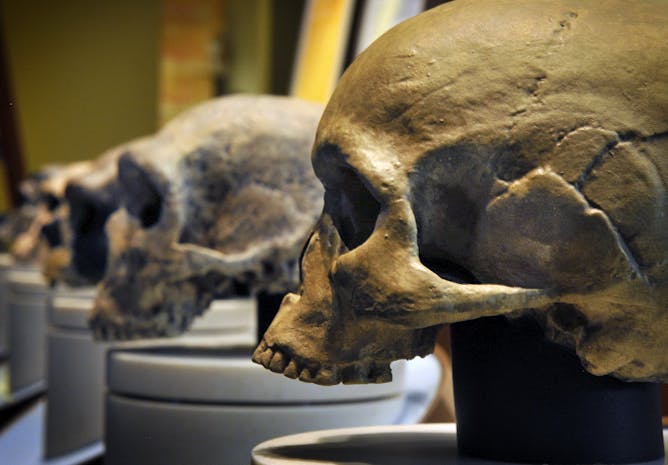|
The week Nobel Prizes are announced is always a busy one for the science editors at The Conversation. First we polish off our crystal ball ahead of time to try to predict winners so we can start laying groundwork on how to cover them. This attempt is rarely successful. We also publish Nobel-related pieces in advance that don’t depend on who wins – like this one about how laureates tend to be interdisciplinary in their approaches
and this one about why they’re even called laureates.
The calls from Sweden are placed in what’s still the middle of the night for some of our editors – and our potential authors – so we rely on our colleagues at The Conversation U.K. and their time zone advantage to publish the first articles that break the news about who won and for what.
Then we look for unique angles for more in-depth stories that jump off from the winning research. This year we brought you articles about ancient DNA stretches in your own genes and what an ethical path ahead looks like for paleogenomics. In the physics category, we filled you in on the basics of “spooky action at a distance” and some technologies that already rely on quantum entanglement. And a chemist explained how his lab uses the Nobel-winning technique in living cells.
We hope our efforts help you understand these Nobel achievements in new ways. We’ll see you next year to do it all again… after a rest.
Also today:
|

Hundreds of thousands of years ago, our Homo sapiens ancestors shared the landscape with multiple other hominins.
The Washington Post via Getty Images
Joshua Akey, Princeton University
Ancient DNA helps reveal the tangled branches of the human family tree. Not only did our ancestors live alongside other human species, they mated with them, too.
|
Politics + Society
|
-
Jordan Hyatt, Drexel University; Synøve Nygaard Andersen, University of Oslo
A pilot project at a Pennsylvania prison is trying out lessons from Scandinavia that could offer some ideas for reforming US prisons.
-
Ramona L. Pérez, San Diego State University
Countries across the Americas are tweaking their census to better understand their population, allowing them to create more responsive policies. The US still has a ways to go.
|
|
Ethics + Religion
|
-
Pierce Salguero, Penn State
Buddhists believe that bodhisattvas reside in heavenly realms but can also appear on Earth disguised as humans, animals or other types of beings.
-
Deina Abdelkader, UMass Lowell
Imposing restrictions on women has been a way for many countries to demonstrate to the world what policies they want to pursue.
-
Samuel L. Boyd, University of Colorado Boulder
A scholar of the Bible explains their history and why they might offer consolation in times of uncertainty.
|
|
Environment
|
-
Zhe Zhu, University of Connecticut; Su Ye, University of Connecticut
Artificial intelligence can spot differences in images from before and after a storm over wide areas in almost real time. It showed Hurricane Ian’s vast damage in Florida.
|
|
Education
|
-
Patricia Fabian, Boston University; Jonathan Levy, Boston University
A lot of federal money is now available for making school buildings healthier. Two environmental health experts explain how school districts can best use it.
|
|
|
|